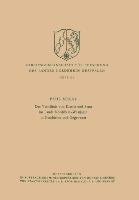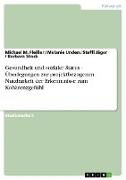Das Verhältnis von Kirche und Staat im Lande Nordrhein-Westfalen in Geschichte und Gegenwart
BücherAngebote / Angebote:
Within the Federal Republic of Germany, the relationship between Church and State comes principally under the responsibilities of the various "Län der". In accordance with Federal Law, the Basic Law provides only a frame work which, above all, guarantees the religious freedom of the individual and the right of self-determination of the Churches. The national ecclesias ticallegal order, which is thus the responsibility of the Länder, is in many ways based upon history. The national ecclesiastical legal conditions have developed differently in the various territories of the Rhenish-Westphalian area since the Religious Peace of Augsburg (1555) and the Treaty of West phalia (1648), upon the foundation of the religious powers of the rulers of these territories. The ecclesiastical rulers in the Archbishopric of Cologne and the Bisbopries of Münster and Paderborn were confronted with the case of Cleve-Mark, which feil to the lot of reformed Brandenburg in 1614. Inter posed was the area of Jülich-Berg which belonged to Catholic Pfalz-Neu burg. In many cases conflicts arose from the claim of the ecclesiastics to jurisdiction over secular rulers. However, they also led to agreements which may be regarded as the precursors of the modern ecclesiastical agreements, adopting at an early date the ideals of tolerance and parity. The Reformed Church and Lutheran parish communities, which had arisen in all territories since the Reformation, united themselves in general Synods, which formed an all-embracing spiritual link between the different territories.
Folgt in ca. 5 Arbeitstagen




